Peugeot 308 SW vs Toyota Corolla Touring Sports - Differences and prices compared
Compare performance (195 HP vs 178 HP), boot space and price (30100 £ vs 29600 £ ) at a glance. Find out which car is the better choice for you – Peugeot 308 SW or Toyota Corolla Touring Sports?
Costs and Efficiency:
When it comes to price and running costs, the biggest differences usually appear. This is often where you see which car fits your budget better in the long run.
Toyota Corolla Touring Sports has a slight advantage in terms of price – it starts at 29600 £ , while the Peugeot 308 SW costs 30100 £ . That’s a price difference of around 515 £.
Fuel consumption also shows a difference: Peugeot 308 SW manages with 2.30 L and is therefore clearly more efficient than the Toyota Corolla Touring Sports with 4.40 L. The difference is about 2.10 L per 100 km.
Engine and Performance:
Under the bonnet, it becomes clear which model is tuned for sportiness and which one takes the lead when you hit the accelerator.
When it comes to engine power, the Peugeot 308 SW has a hardly perceptible edge – offering 195 HP compared to 178 HP. That’s roughly 17 HP more horsepower.
In acceleration from 0 to 100 km/h, the Toyota Corolla Touring Sports is barely noticeable quicker – completing the sprint in 7.50 s, while the Peugeot 308 SW takes 7.70 s. That’s about 0.20 s faster.
In terms of top speed, the Peugeot 308 SW performs to a small extent better – reaching 225 km/h, while the Toyota Corolla Touring Sports tops out at 180 km/h. The difference is around 45 km/h.
Space and Everyday Use:
Whether family car or daily driver – which one offers more room, flexibility and comfort?
Both vehicles offer seating for 5 people.
In curb weight, Peugeot 308 SW is barely noticeable lighter – 1484 kg compared to 1485 kg. The difference is around 1 kg.
In terms of boot space, the Toyota Corolla Touring Sports offers minimal more room – 596 L compared to 551 L. That’s a difference of about 45 L.
In maximum load capacity, the Toyota Corolla Touring Sports performs barely noticeable better – up to 1606 L, which is about 123 L more than the Peugeot 308 SW.
When it comes to payload, Peugeot 308 SW somewhat takes the win – 508 kg compared to 440 kg. That’s a difference of about 68 kg.
Who wins the race in the data check?
The Peugeot 308 SW sits well ahead of its rival in the objective data comparison.
This result only shows which model scores more points on paper – not which of the two cars feels right for you.
Costs and Consumption
View detailed analysis
Engine and Performance
View detailed analysis
Dimensions and Body
View detailed analysis
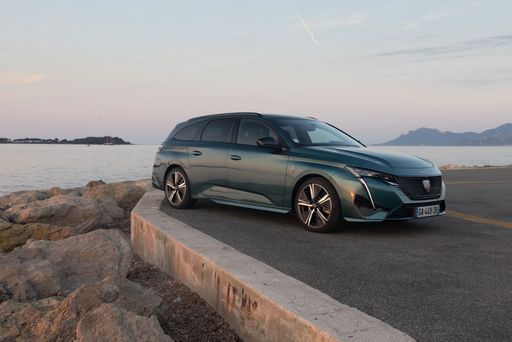
Peugeot 308 SW
Peugeot 308 SW
The Peugeot 308 SW blends French flair with estate practicality, dressing up daily chores in a surprisingly handsome package. Inside it's cleverly laid out and comfortable, and the composed, entertaining drive makes family duty feel a little less like a chore.
details
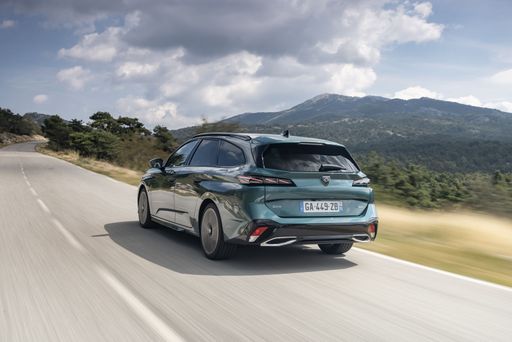
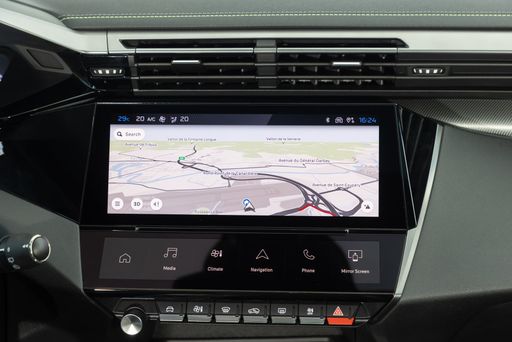
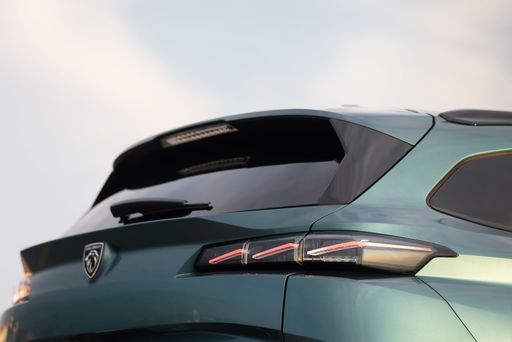
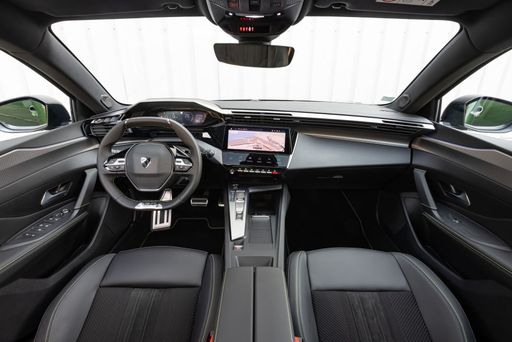
Toyota Corolla Touring Sports
The Toyota Corolla Touring Sports is a sensible yet stylish estate that blends everyday practicality with Toyota's trademark reliability, making it the kind of car that quietly gets on with family life without drama. Inside it's cleverly packaged for luggage and kids' gear and feels calm and comfortable on the road — sensible rather than flashy, but with enough character to make daily drives more enjoyable.
details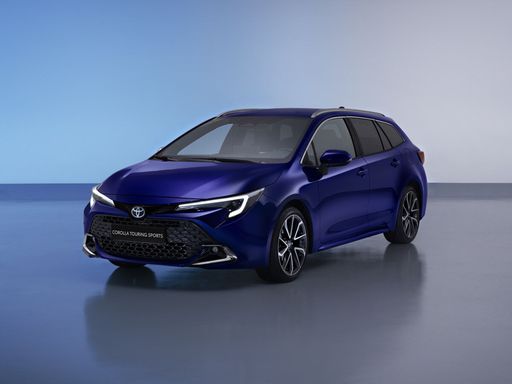
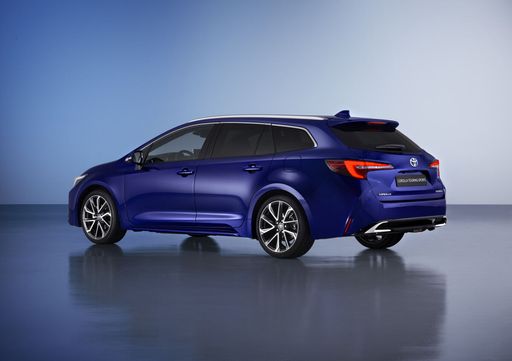
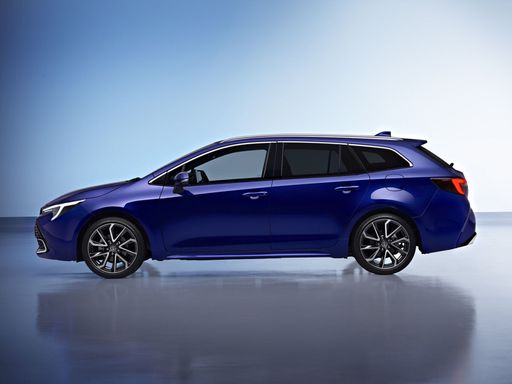
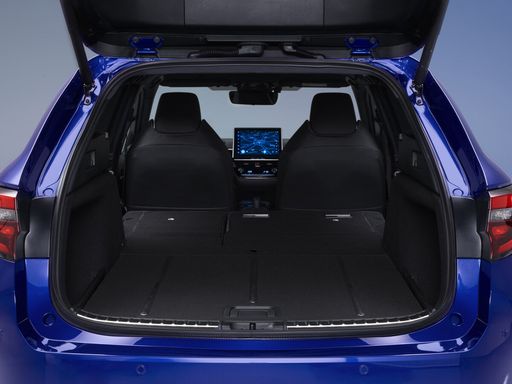
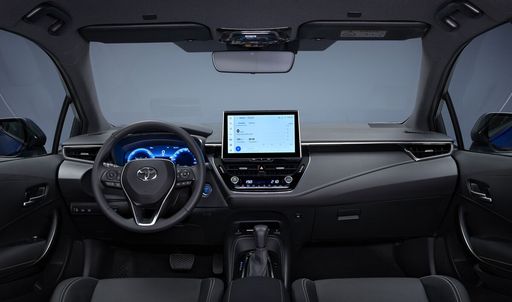
Costs and Consumption |
|
|---|---|
|
Price
30100 - 43800 £
|
Price
29600 - 36400 £
|
|
Consumption L/100km
2.3 - 5.1 L
|
Consumption L/100km
4.40 L
|
|
Consumption kWh/100km
15.20 kWh
|
Consumption kWh/100km
-
|
|
Electric Range
78 - 410 km
|
Electric Range
-
|
|
Battery Capacity
0.40 kWh
|
Battery Capacity
-
|
|
co2
0 - 130 g/km
|
co2
100 g/km
|
|
Fuel tank capacity
42 - 52 L
|
Fuel tank capacity
43 L
|
Dimensions and Body |
|
|---|---|
|
Body Type
Estate
|
Body Type
Estate
|
|
Seats
5
|
Seats
5
|
|
Doors
5
|
Doors
5
|
|
Curb weight
1484 - 1783 kg
|
Curb weight
1485 - 1515 kg
|
|
Trunk capacity
467 - 551 L
|
Trunk capacity
581 - 596 L
|
|
Length
4636 mm
|
Length
4650 mm
|
|
Width
1852 mm
|
Width
1790 mm
|
|
Height
1438 mm
|
Height
1435 mm
|
|
Max trunk capacity
1402 - 1483 L
|
Max trunk capacity
1591 - 1606 L
|
|
Payload
417 - 508 kg
|
Payload
400 - 440 kg
|
Engine and Performance |
|
|---|---|
|
Engine Type
Petrol MHEV, Diesel, Plugin Hybrid, Electric
|
Engine Type
Full Hybrid
|
|
Transmission
Automatic
|
Transmission
Automatic
|
|
Transmission Detail
Dual-Clutch Automatic, Automatic Gearbox, Reduction Gearbox
|
Transmission Detail
CVT
|
|
Drive Type
Front-Wheel Drive
|
Drive Type
Front-Wheel Drive
|
|
Power HP
131 - 195 HP
|
Power HP
140 - 178 HP
|
|
Acceleration 0-100km/h
7.7 - 10.9 s
|
Acceleration 0-100km/h
7.5 - 9.2 s
|
|
Max Speed
170 - 225 km/h
|
Max Speed
180 km/h
|
|
Torque
230 - 300 Nm
|
Torque
-
|
|
Number of Cylinders
3 - 4
|
Number of Cylinders
4
|
|
Power kW
96 - 144 kW
|
Power kW
103 - 131 kW
|
|
Engine capacity
1199 - 1598 cm3
|
Engine capacity
1798 - 1987 cm3
|
General |
|
|---|---|
|
Model Year
2025
|
Model Year
2025
|
|
CO2 Efficiency Class
C, D, B, A
|
CO2 Efficiency Class
C
|
|
Brand
Peugeot
|
Brand
Toyota
|
Is the Peugeot 308 SW offered with different drivetrains?
The Peugeot 308 SW is available as Front-Wheel Drive.




